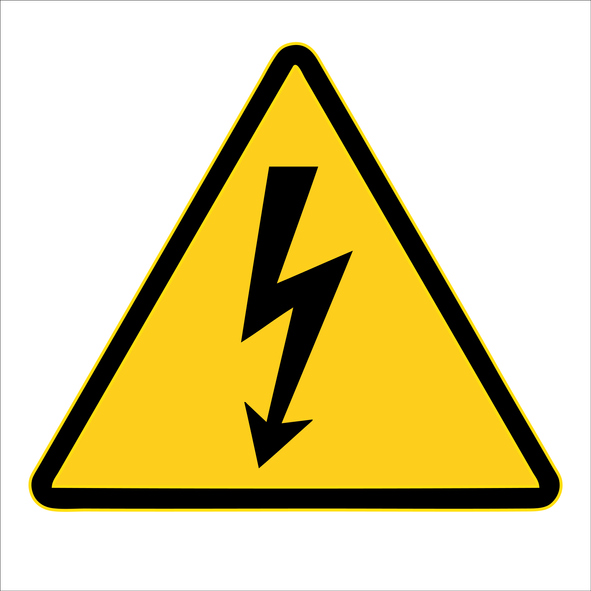As the spring season arrives, many individuals embark on household cleaning and outdoor gardening tasks. Amidst the hustle and bustle of seasonal activities, it’s crucial not to overlook electrical safety. Electrical hazards can lurk in various corners of your home, whether you’re working outdoors or tackling chores indoors. Here’s a comprehensive guide to staying safe and secure as you embrace the springtime spirit:
1. Conduct a Comprehensive Inspection:
- Start your spring cleaning routine by conducting a thorough inspection of your home’s electrical system. Look for signs of wear and tear, such as frayed cords, loose outlets, or flickering lights.
- Pay special attention to high-traffic areas and frequently used appliances, such as the kitchen, laundry room, and entertainment spaces.
- Consider hiring a licensed electrician for a professional inspection, especially if you notice any potential hazards or issues beyond your expertise.
2. Unplug Unused Appliances:
- Reduce energy consumption and minimize the risk of electrical fires by unplugging appliances and electronics when they’re not in use.
- Create a checklist of commonly overlooked items that can be unplugged, such as phone chargers, small kitchen appliances, and electronic devices in standby mode.
- Invest in smart power strips or timers to automate the process of turning off unused electronics and appliances, saving both energy and money.
3. Beware of Moisture Hazards:
- Spring showers and outdoor watering activities can create moisture hazards that pose a risk of electrical shock or short circuits.
- Keep electrical cords, tools, and outlets away from water sources, including sprinklers, hoses, and damp ground.
- Inspect outdoor electrical outlets and lighting fixtures for signs of water damage or corrosion, and repair or replace them as needed to ensure safe operation.
4. Stay Safe in the Garden:
- Before digging or landscaping in your yard, call 811 to have underground utility lines marked to avoid accidental damage or electrocution.
- Use insulated tools and wear protective gear, such as gloves and goggles, when working near electrical equipment or power lines.
- Exercise caution when using outdoor power tools, and always follow manufacturer instructions and safety guidelines to prevent accidents or injuries.
5. Utilize Ground Fault Circuit Interrupters (GFCIs):
- Install GFCI outlets in areas exposed to moisture, such as bathrooms, kitchens, and outdoor spaces, to provide enhanced shock protection.
- Test GFCI outlets regularly to ensure they are functioning properly, using the built-in test button or a GFCI tester device.
- Consider upgrading older outlets to GFCI models or installing GFCI circuit breakers in your electrical panel for comprehensive protection against ground faults.
6. Practice Proper Extension Cord Usage:
- Use outdoor-rated extension cords for outdoor tasks and avoid overloading them with too many appliances or tools.
- Keep extension cords clear of pathways and potential tripping hazards, and never run them under rugs or carpets where they can become damaged or overheated.
- Inspect extension cords regularly for signs of wear or damage, such as fraying or exposed wires, and replace them immediately if necessary to prevent electrical hazards.
7. Educate Children on Electrical Safety:
- Engage children in springtime activities while teaching them about the importance of electrical safety.
- Explain the dangers of playing near electrical outlets, cords, or appliances, and establish clear rules for using electronics and power tools.
- Encourage children to report any electrical hazards or concerns they encounter and involve them in age-appropriate tasks to foster a sense of responsibility and awareness.
8. Organize and Maintain Electronics:
- Keep cords and cables organized and free from tangles to prevent tripping hazards and reduce the risk of overheating or electrical fires.
- Label cords with their corresponding devices to easily identify and disconnect them when needed for maintenance or repairs.
- Invest in surge protectors or uninterruptible power supplies (UPS) to safeguard sensitive electronics from power surges and fluctuations, especially during spring thunderstorms.
9. Prepare for Emergencies:
- Create an emergency preparedness kit that includes essential items such as flashlights, batteries, first aid supplies, and a battery-powered or hand-cranked radio.
- Develop a family emergency plan that outlines evacuation routes, designated meeting points, and procedures for safely shutting off utilities in the event of a power outage or other emergency.
- Keep important contact information, including utility providers and emergency services, readily accessible and share it with all members of your household.
By following these comprehensive electrical safety tips, you can enjoy a worry-free spring season while protecting your home and loved ones from potential hazards. Remember, safety always comes first when it comes to electricity. Stay informed, stay vigilant, and stay safe!
For professional electrical services and expert advice on keeping your home safe year-round, trust the experienced team at Kazar’s Electric, Inc. Contact us today to schedule an inspection or learn more about our range of electrical solutions tailored to your needs.

